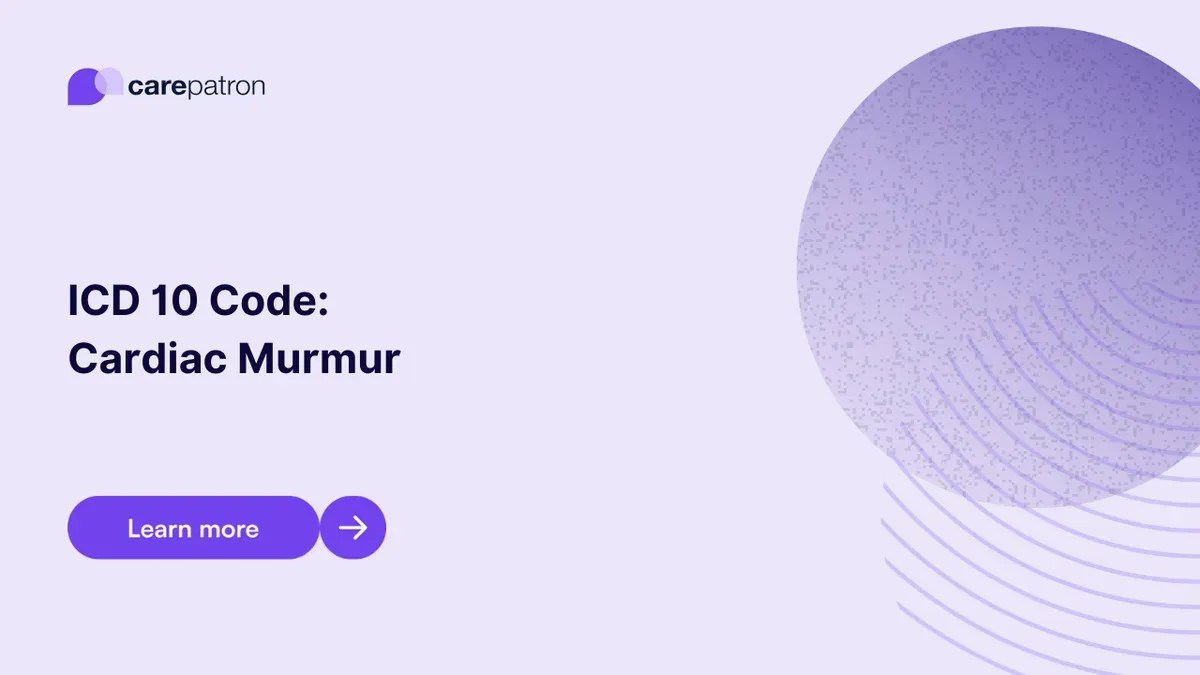
Cardiac Murmur ICD-10-CM Codes
Read this short guide to learn about Cardiac Murmur ICD codes you can use.
Use Code
Commonly asked questions
Earlier, we mentioned that cardiac murmurs don’t necessarily mean that a person has a heart problem, but if they do have a heart problem, they will likely have any one of these:
- Endocarditis
- Heart valve disease
- Hyperthyroidism
- Anemia
- Carcinoid Heart Disease
When conducting a physical examination of a patient, it’s best to check for the following:
- If they feel tired despite not having done anything strenuous
- If they feel tightness and/or pain in their chest
- If they have heart palpitations
- If they have shortness of breath
- If they have bluish skin
Cardiac murmurs usually don’t have symptoms, but if they have the symptoms above and you hear murmurs through a stethoscope, it’s likely caused by an underlying condition.
Childhood is when innocent cardiac murmurs are frequently heard, particularly during growth spurts. Exercise and pregnancy both increase the risk of developing innocent cardiac murmurs.
EHR and practice management software
Get started for free
*No credit card required
Free
$0/usd
Unlimited clients
Telehealth
1GB of storage
Client portal text
Automated billing and online payments
